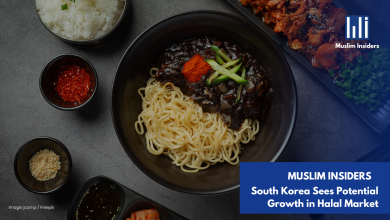
In recent news, an Indian Muslim (mamak) restaurant in Johor Bahru faced a significant controversy when a couple brought their dogs, allowing them to rest on the chairs. This incident led to the restaurant’s temporary closure for cleaning and also sparked a heated debate about the presence of pets in the restaurant.
The Incident

A couple dining at the Mamak restaurant in Bandar Cemerlang, Ulu Tiram, Johor recently gained significant attention when they brought their dogs into the restaurant. The situation escalated as the dogs were allowed to rest on the restaurant’s chairs, leading to concerns among other diners and social media users. After the incident, the restaurant was ordered to close temporarily to address the sanitation issues caused by the incident.
According to China Press, the restaurant manager said that ten employees of the restaurant spend a whole day cleaning the tables and floors. It was done seven times, according to Islamic guidelines. Despite that, there is no news that the restaurant will reopen.
The action of this incident has not only angered the Muslims, but also Chinese netizens who questioned their lack of sensitivity.
Understanding Halal Practices
Halal dietary laws, derived from Islamic principles, emphasize cleanliness and the purity of food preparation environments. These practices include strict rules about how food is prepared, served, and consumed. While halal guidelines primarily focus on dietary restrictions and the type of food consumed, they also encompass broader principles of cleanliness and respect within dining environments.
Implications for Halal Restaurants
It is important for halal restaurants to follow halal guidelines, including maintaining hygienic practices, ensuring safety, and adhering to Islamic dietary laws. This helps provide customers with a clean and safe environment, enhancing their overall dining experience. Restaurants that excel in maintaining halal standards can draw more customers.
- Maintaining Cleanliness The presence of pets in halal restaurants can cause a challenge to meeting the standards of cleanliness and halal practices. Halal restaurants are expected to maintain a clean and hygienic environment. This incident highlights the need for halal establishments to enforce clear policies regarding pets to uphold these standards.
- Respecting Religious and Cultural Sensitivities For many people who eat at halal restaurants, their dining experience is deeply connected to their religious and cultural practices. Letting pets into these spaces can be viewed as disrespectful to these beliefs. This situation highlights the need to respect diners’ religious and cultural expectations by keeping the dining environment in line with their values.
- Educating Diners The incident serves as a reminder of the need for public education about halal practices. Many diners may not fully understand the reasons behind pet restrictions in halal restaurants. By educating the public about the importance of these practices, halal restaurants can foster greater understanding and respect among their patrons.
- Implementing Clear Policies To prevent similar incidents, halal restaurants should implement and communicate clear policies regarding the presence of pets. These actions could include in displaying clear signs of not allowing pet in the restaurant and training the staffs. This is to ensure that all guests are aware of and adhere to JAKIM guideline to maintain cleanliness.
- Handling Controversies and Feedback Halal restaurants must be prepared to handle controversies and feedback from the public. Transparent communication and proactive measures to address concerns can help maintain a positive reputation and ensure that diners understand the rationale behind restaurant policies.
Conclusion
The recent incident serves as a crucial situation for understanding the impact of pets in halal dining spaces. By looking at this situation and its wider effects, halal restaurants can learn important lessons about keeping clean, respecting cultural traditions, and informing diners. Clear rules and good communication are key to ensuring that halal restaurants offer a respectful and hygienic dining experience for everyone.




